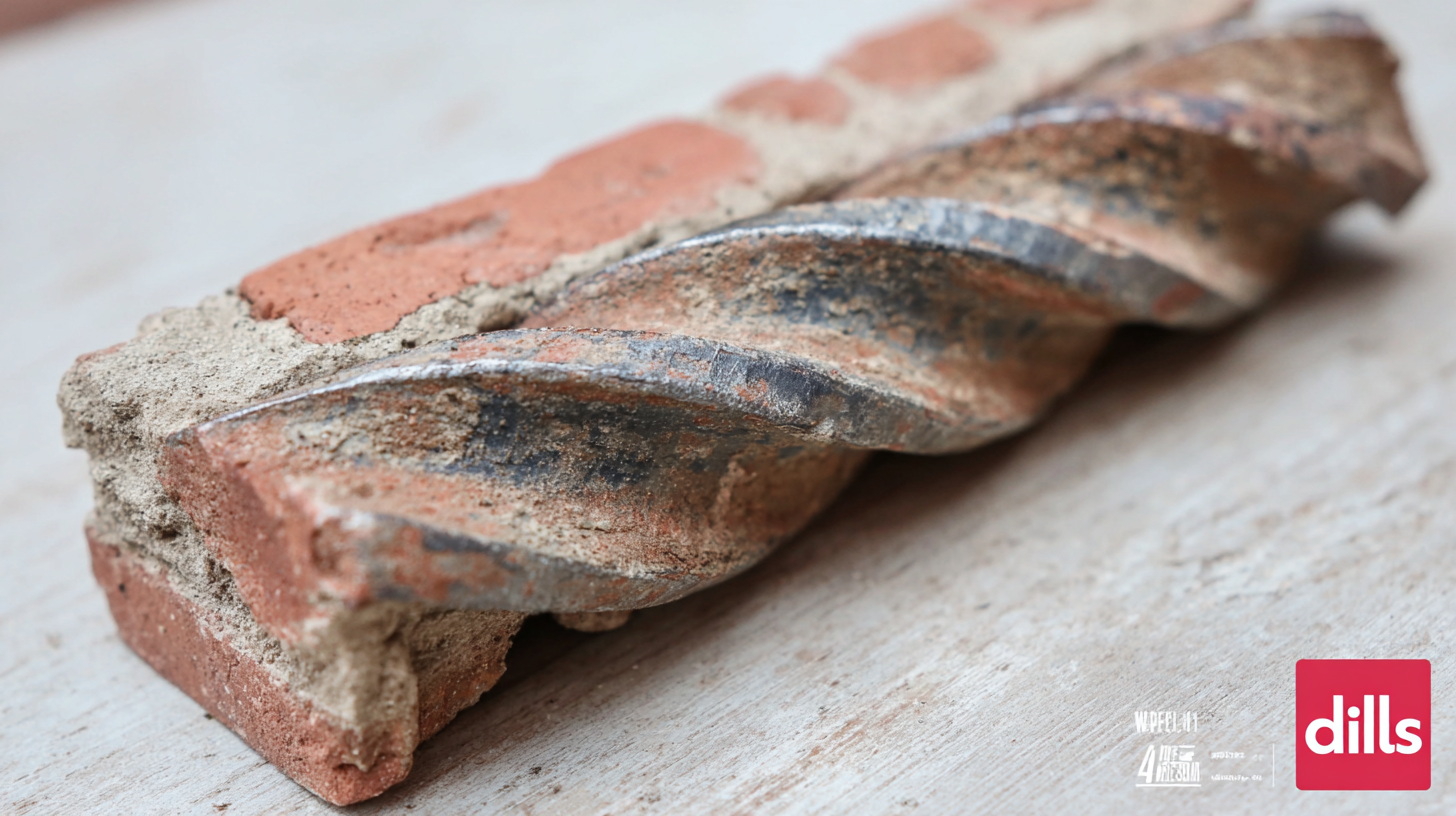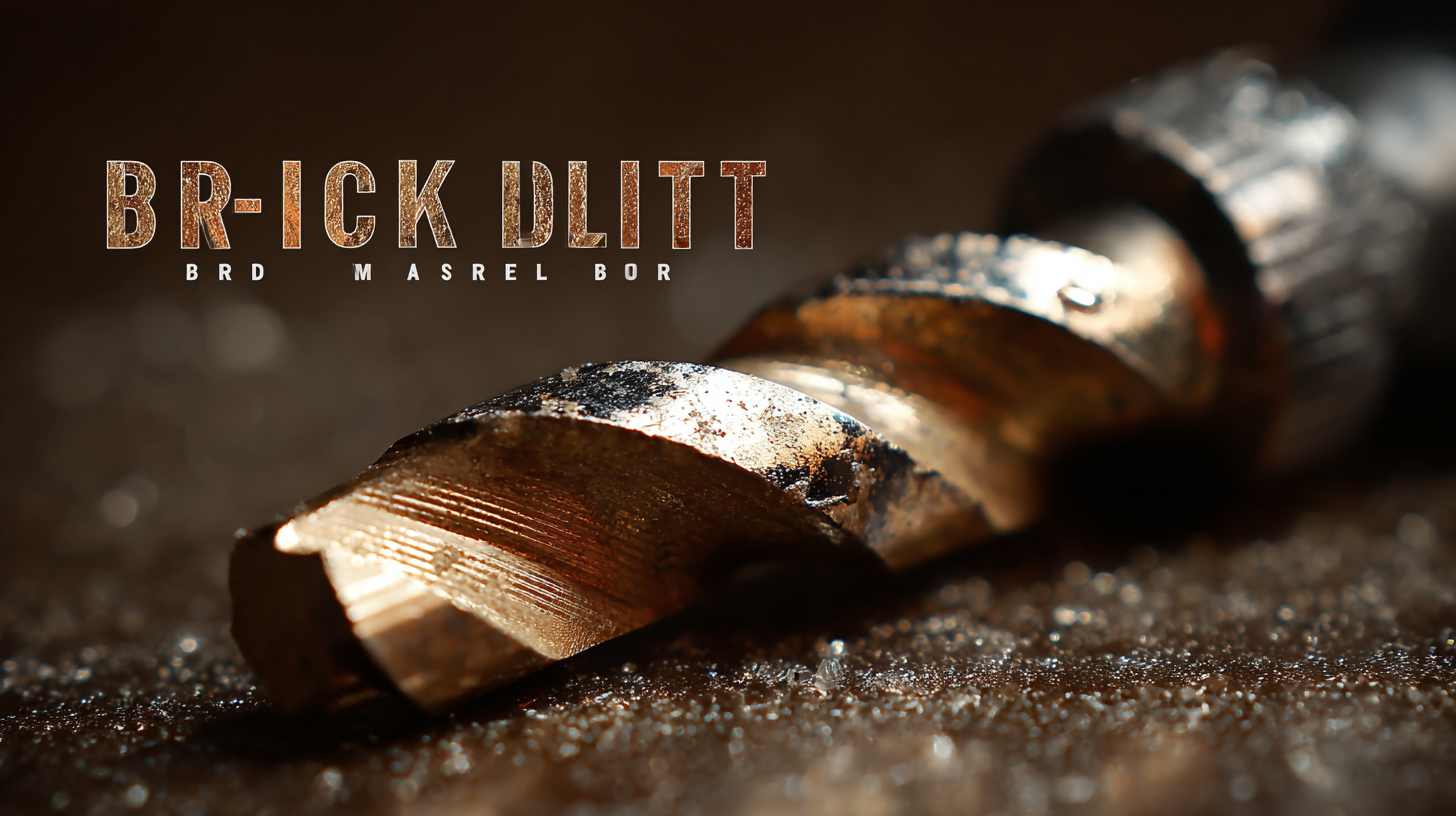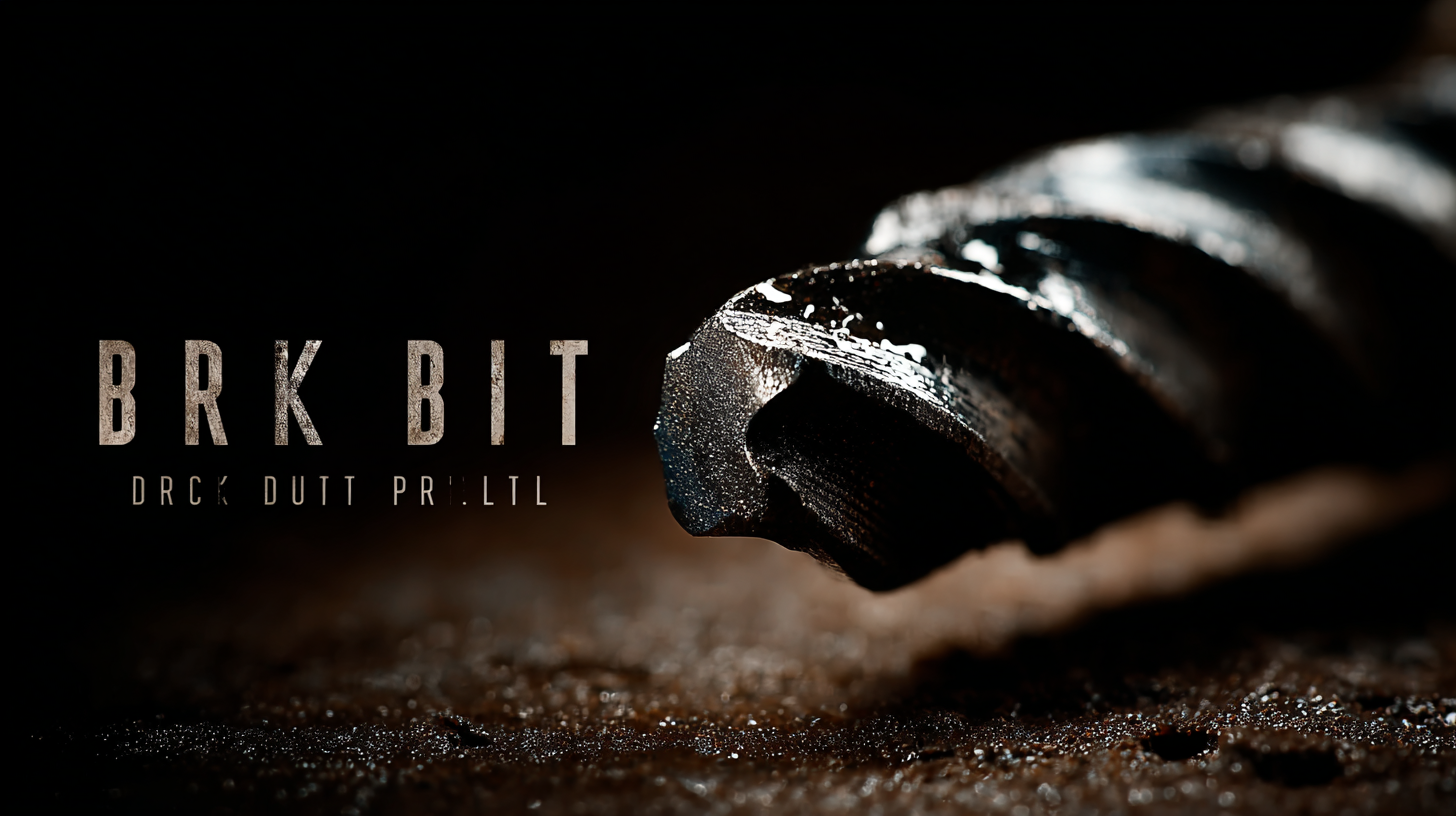FREE SHIPPING ON ALL BUSHNELL PRODUCTS
Leave Your Message
When it comes to tackling masonry projects, selecting the right tools is critical for achieving optimal results. Among these tools, the Brick Masonry Drill Bit stands out as an essential item for both professional masons and DIY enthusiasts alike.

According to the latest industry report by the Construction Industry Association, improper tool selection can lead to time-consuming delays and increased costs, with nearly 30% of masonry projects facing setbacks due to inadequate equipment.
With such significant implications, understanding the nuances of different drill bits tailored for brick and masonry is paramount. This guide offers seven essential tips to help you navigate the complexities of choosing the best Brick Masonry Drill Bit, ensuring your projects remain efficient and successful.
When embarking on masonry projects, selecting the right drill bit is crucial for efficiency and quality. Understanding the different types of brick masonry drill bits available can significantly impact the outcome of your work. The most common types include carbide-tipped, diamond-tipped, and standard masonry bits. According to a report from the National Association of Home Builders, choosing a diamond-tipped bit for tough materials can increase drilling speed by 30% compared to traditional carbide-tipped options. This highlights the importance of selecting the correct bit type for specific masonry conditions.
Carbide-tipped bits are generally used for softer brick and mortar, while diamond-tipped bits are designed for harder materials such as reinforced bricks and concrete. A study by the American Concrete Institute indicates that using the appropriate drill bit can reduce the wear on your equipment, extending its life by up to 25%. Additionally, the report suggests that investing in high-quality bits may have a significant return on investment through improved performance and reduced downtime. Understanding the nuances of each type of brick masonry drill bit can lead to more successful project outcomes and efficient use of tools.
| Type of Drill Bit | Material | Best Use | Diameter Range | Average Price |
|---|---|---|---|---|
| Masonry Bit | Carbide-tipped | General brick drilling | 1/4" - 1" | $10 - $25 |
| Diamond Bit | Diamond-coated | For tough materials | 1/8" - 1" | $20 - $50 |
| SDS Hammer Bit | Carbide-tipped | Heavy-duty applications | 5/16" - 1" | $15 - $40 |
| Combination Bit | High-speed steel | Multi-material drilling | 3/16" - 1/2" | $8 - $20 |
| Core Bit | Diamond-coated | Creating larger holes | 1/2" - 6" | $50 - $150 |
When selecting the best brick masonry drill bit for your projects, it’s crucial to consider key features that will ensure optimal performance and durability. According to a report by the National Association of Home Builders (NAHB), choosing the right drill bit can significantly affect the efficiency of your drilling, particularly when working with hard materials like brick and concrete. A high-quality drill bit typically has a tungsten carbide tip, which provides superior hardness and resistance to wear. This is essential for maintaining cutting efficiency even after repeated use.
 Additionally, the bit's design plays a pivotal role in its effectiveness. A spiral flute design not only enhances dust removal but also improves cutting speed, which can reduce drilling time by up to 30%, as highlighted in a 2022 study by the American Concrete Institute (ACI). Furthermore, it's important to select a drill bit with a diameter that matches your specific requirements, as variations can impact the integrity of your project. By focusing on these key features, you can ensure that your masonry drilling tasks are carried out smoothly and efficiently.
Additionally, the bit's design plays a pivotal role in its effectiveness. A spiral flute design not only enhances dust removal but also improves cutting speed, which can reduce drilling time by up to 30%, as highlighted in a 2022 study by the American Concrete Institute (ACI). Furthermore, it's important to select a drill bit with a diameter that matches your specific requirements, as variations can impact the integrity of your project. By focusing on these key features, you can ensure that your masonry drilling tasks are carried out smoothly and efficiently.
Choosing the right drill bit size is crucial for the success of your masonry projects. According to a report by the American Concrete Institute, using the correct drill bit can increase drilling efficiency by up to 30%. When matching drill bit sizes to your project requirements, consider the type of masonry material you’ll be working with—whether it’s brick, concrete, or stone. Each material has varying densities and hardness levels, which directly influence the size of the bit required for optimal results.
For instance, when drilling into standard brick, a bit diameter of 1/4 to 1/2 inch is typically recommended. However, for harder materials such as concrete, a larger bit size may be necessary to accommodate deeper holes and achieve proper anchoring for fixtures. The International Masonry Institute suggests that using a bit that is too small can cause excessive heat and wear, diminishing both the bit's lifespan and the quality of the completed work. Thus, understanding the specific requirements of your masonry projects and selecting the appropriate drill bit size is fundamental to ensuring both efficiency and effectiveness in your drilling endeavors.
When selecting the right drill bit for brick masonry, the material of the bit plays a crucial role in determining both performance and longevity. High-quality materials like carbide or diamond-tipped variants are specifically engineered to handle the abrasive nature of brick. Carbide bits offer a robust balance between cost and durability, allowing for long-lasting use even under heavy drilling conditions. They are perfect for homeowners and professionals alike who need to tackle various masonry projects without the hassle of frequent bit replacements.
In contrast, diamond-tipped drill bits, while more expensive, provide unparalleled precision and durability. Ideal for specialized tasks, such as drilling through particularly dense bricks or stone, these bits can significantly reduce the risk of wear and tear. By investing in the right material, users can maximize efficiency, minimize downtime, and ultimately achieve better results in their masonry projects. Choosing the right drill bit material not only enhances performance but ensures that your tools withstand the rigors of tough masonry work, leading to successful project outcomes.
When it comes to brick masonry drill bits, proper maintenance and care are crucial for ensuring their longevity and optimal performance. One of the first tips to consider is regular cleaning. After each use, make it a habit to remove any debris or dust that may cling to the bit. This not only helps maintain the cutting edges but also prevents premature wear and tear. A soft brush or a compressed air can effectively remove stubborn particles, keeping your drill bits in top shape.
Another important aspect is storing your drill bits correctly. Always place them in a designated case or holder to avoid any accidental damage or dulling of the edges. A protective storage system not only organizes your tools but also shields them from moisture and dirt, which can adversely affect their performance. Lastly, periodic sharpening is essential for maintaining sharpness. Investing in a quality sharpening tool can help you restore the cutting edges, ensuring that your masonry projects are executed efficiently and effectively. By following these maintenance tips, you can extend the life of your brick masonry drill bits and achieve the best results in your projects.

